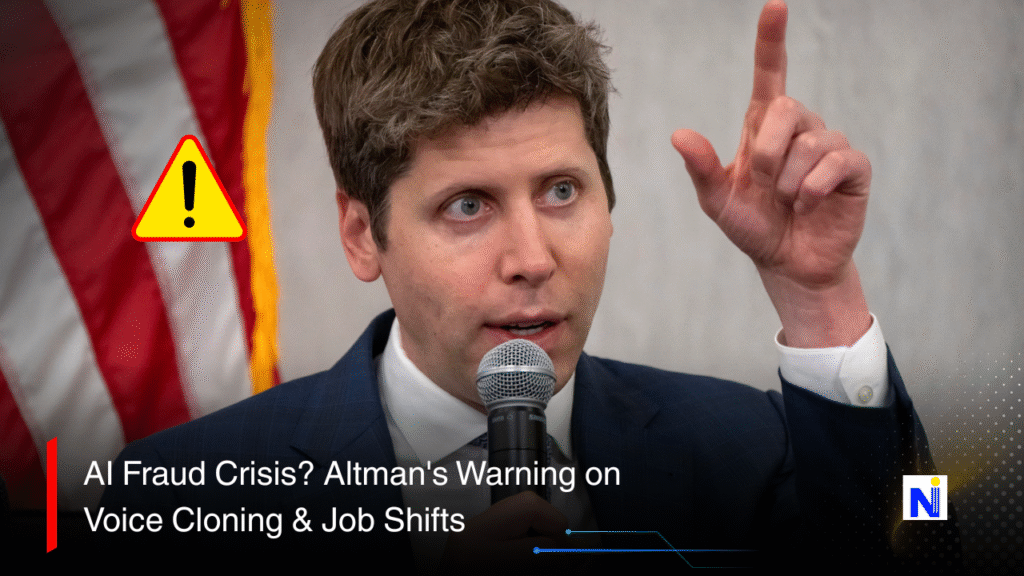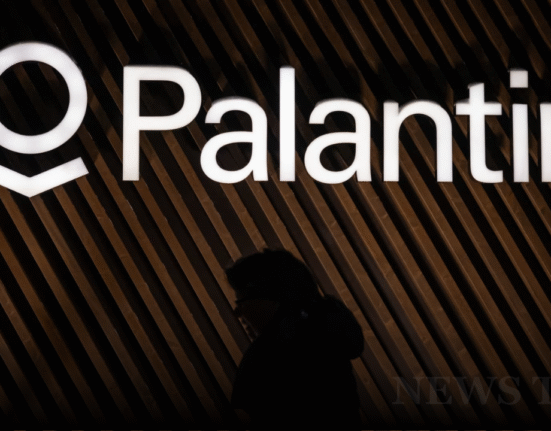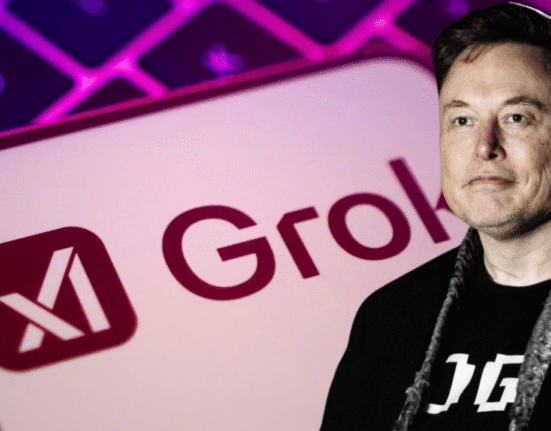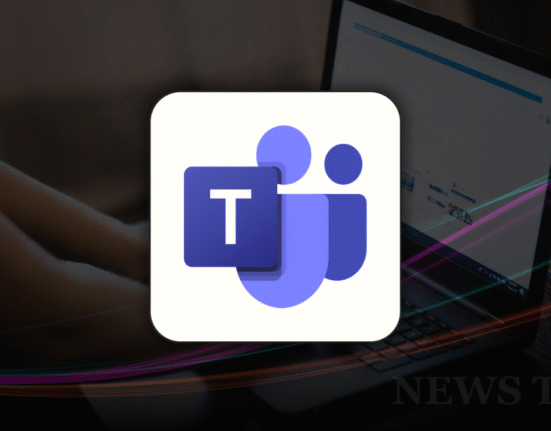
Imagine getting a desperate call from your child — only it’s not really them. It’s an AI-generated voice, eerily accurate, pleading for help. Terrifying, right? OpenAI CEO Sam Altman thinks so too. In a recent eye-opening conversation with the Federal Reserve, Altman sounded the alarm on a fast-approaching AI fraud crisis that could reshape how we define trust in the digital age. From voice cloning to fake videos, the future of fraud may be smarter than we are ready for.
A Stark Warning from OpenAI’s CEO
Altman, known for his balanced optimism about AI’s potential, didn’t mince words. During his interview at the Federal Reserve, he expressed deep concern over how quickly artificial intelligence is enabling impersonation and deception.
“That is a crazy thing to still be doing”
Altman referred to outdated security practices, like voice authentication for banking. “AI has fully defeated most of the ways that people authenticate currently, other than passwords,” he said.
He wasn’t exaggerating:
- The FBI has already warned of voice cloning scams targeting parents.
- An AI-generated voice of Secretary Marco Rubio reportedly contacted global officials.
- FaceTime and video calls might soon be indistinguishable from reality.
AI is Outpacing Regulation
Altman’s remarks come at a critical time. The White House is about to unveil its AI Action Plan, aiming to regulate and boost U.S. dominance in AI. OpenAI has provided input into this policy and is expanding its presence in Washington D.C., including a new 30-person office dedicated to:
- Educating policymakers and teachers
- Hosting live AI demonstrations
- Researching AI’s economic impact
Yet despite this proactive outreach, OpenAI has warned the Trump administration against overregulation that could hinder American innovation in comparison to countries like China.
The Reality of AI-Driven Scams
Altman is not alone in ringing the alarm bells. Government agencies, parents, and tech experts have already experienced the consequences of AI misuse.
Examples of AI-Enabled Fraud
- Fake Kidnapping Calls: Parents have received AI-generated cries from kids they believed were kidnapped.
- Spoofed Government Officials: Foreign diplomats were duped by voice clones of senior American politicians.
- Fake Financial Orders: There are credible concerns about AI being used to fake financial transactions.
Tools Like The Orb
To counter these threats, Altman supports technologies like The Orb, a device by Tools for Humanity. It verifies if you’re a human — not a bot or impersonator — using biometric data. It’s designed for an internet that no longer knows who’s real.
“I am very nervous that we have an impending, significant fraud crisis,” Altman said.
And it’s not just about calls. Deepfakes are evolving. In the near future, your FaceTime might be with a convincing digital imposter.
Will AI Take Over Jobs? Altman Says: Nobody Knows
Amid fears of AI stealing jobs, Altman stands out with a different take: uncertainty.
“No one knows what happens next”
While leaders like Amazon’s Andy Jassy and Anthropic’s Dario Amodei predict massive job losses, Altman emphasizes unpredictability:
“This is too complex of a system, this is too new and impactful of a technology… it’s very hard to predict.”
He does acknowledge:
- Entire job classes may disappear
- New categories of work will emerge
The “Silly Status Game” Workforce
Looking 100 years into the future, Altman envisions a world where jobs aren’t necessities but social tokens:
“You have everything you could possibly need. You have nothing to do… so you’re making up a job to play a silly status game.”
A bold vision, sure — but it raises real questions about economic stability and purpose.
Productivity and AI: The Bright Side?
In conjunction with Altman’s talk, OpenAI released a report by Chief Economist Ronnie Chatterji, highlighting how AI is already improving productivity.
Key Stats from the Report:
- 500 million ChatGPT users globally
- 20% of US users use ChatGPT as a personalized tutor
- Over 50% of American users are aged 18–34
| Metric | Statistic |
|---|---|
| Global ChatGPT Users | 500 million |
| US Users Using as Tutor | 20% |
| Young Adult Demographic | 18–34 years old (50%+) |
Looking Ahead
Chatterji is teaming up with top economists like Jason Furman and Michael Strain for a long-term study on AI and the workforce — hosted out of OpenAI’s new D.C. office.
The Balancing Act: Innovation vs. Risk
OpenAI is navigating a tightrope. It wants to drive progress while avoiding regulatory chains. Altman’s dual message is clear:
- AI is powerful and dangerous — especially in the wrong hands.
- But we can’t afford to fall behind globally, especially with China’s rapid AI development.
As tech companies race toward so-called superintelligence, Altman admits he’s afraid of a world where:
- Humans lose control of AI
- Adversaries use AI to target infrastructure or develop bioweapons
It’s a cautionary tale and a rallying cry.
A Time for Thoughtful Urgency
Sam Altman’s warnings are more than Silicon Valley chatter. They’re signals that we’re on the edge of something huge — both promising and perilous. We can’t afford to ignore AI’s risks, especially when they threaten to erode something as fundamental as identity.
Yet amid the noise, there’s hope. Smart regulation, ethical innovation, and global cooperation could lead us to a future where AI enhances — not deceives — our lives.






